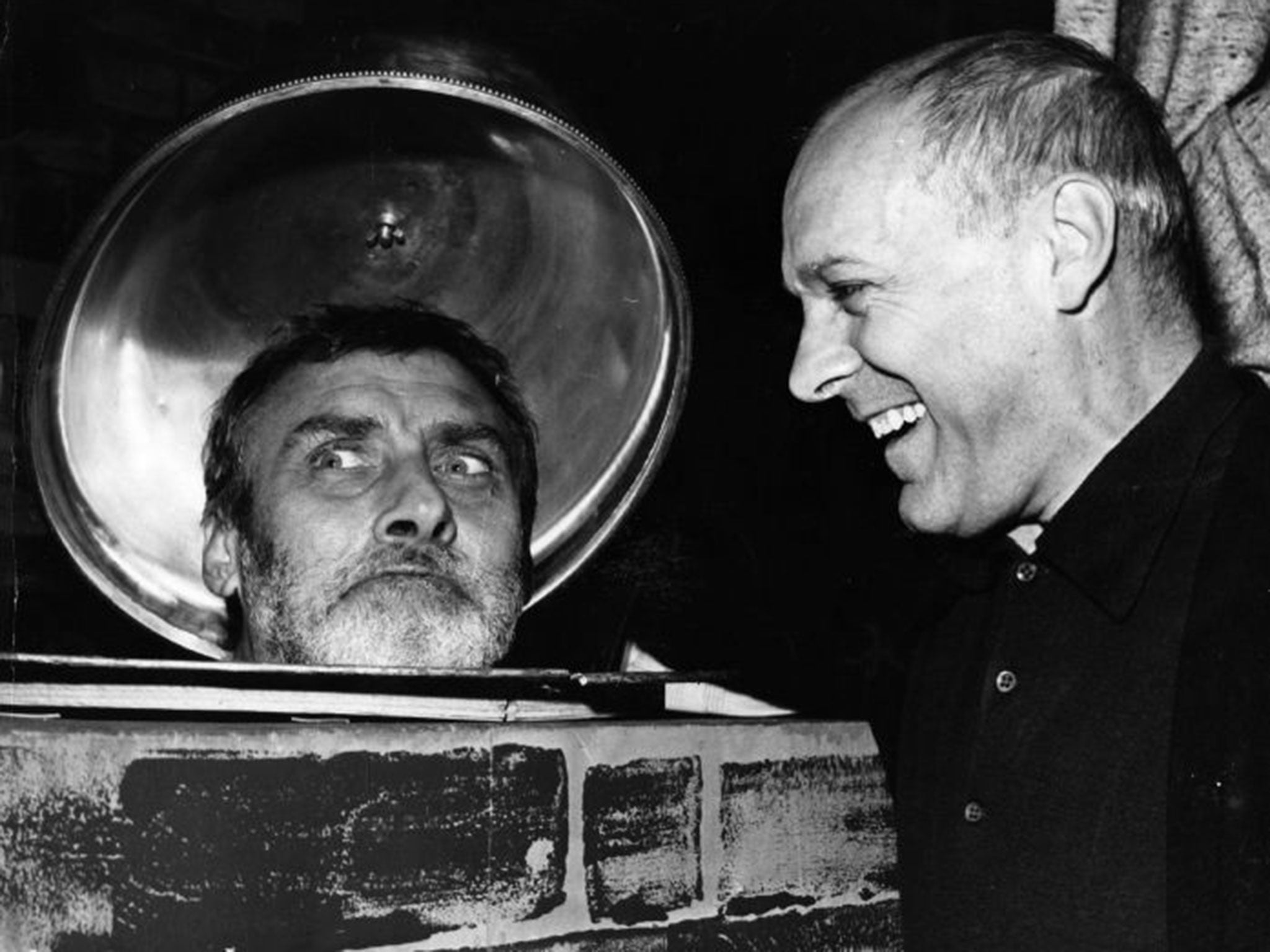Bill Kerr: Comedian and actor who began as a child star and became best known working with the Goons and Tony Hancock

Despite his catchphrase, "I'm only here for four minutes", Bill Kerr enjoyed a nine-decade career most performers can only dream of, impressive as much for its diversity as its longevity. He made his stage debut as a baby, worked with the Goons and Tony Hancock, and won his spurs performing everything from vaudeville to Cole Porter. He was the last surviving regular from Hancock's Half Hour, one of a cherished cluster with Hattie Jacques, Sid James, Kenneth Williams and Hancock himself, all of whom are now no more.
He was born William Henry Kerr in Cape Town in 1922. His parents were actors from Melbourne; his mother had moved to England to seek her fortune on the stage in 1910, a story which was the inspiration for the television serial The Private War of Lucinda Smith (1990), which Kerr co-starred in alongside Nigel Havers.
His mother was as indefatigable as her son would prove to be, playing anywhere and in seemingly everything, including Chu Chin Chow, the musical comedy that ran for five years in London and held the record for the most continuous performances until Salad Days 40 years later, which Kerr himself later starred in. Briefly in South Africa, she appeared in a play entitled A Sinner in Paradise, and rather than use a doll for a scene in which she brought a baby on to the stage, she suggested using her own, a manner of debut that Kerr shared with the late, great Angela Baddeley.
He made a comeback at seven as "Wee Willy Kerr, the Jackie Coogan of Australian vaudeville". Apt for the Depression, he crowd-pleased with renditions of "In These Hard Times" and "Hello, Prosperity", and then "did a dance and got off". His schooling was patchy; he was too busy making appearances in films such as Harmony Row (1933), in which he starred opposite the Australian comedian George Wallace, and playing the juvenile roles in Shakespeare productions for ABC.
When war broke out he volunteered for the RAF but was turned down due to colour blindness, (by Ronald Colman's brother). Instead he joined the Army, where he and future Oscar-winner Peter Finch staged variety shows. In 1947 he moved to London, performing a front-of-curtain act, falling in with immaculate comic timing with a wealth of great performers: Robb Wilton, a master of slightly surreal incompetence, Danny Kaye and Sophie Tucker. He spent six years sharpening his skills at the Windmill then fell in with a strange new breed who were becoming an attraction at the Strutton Arms in Victoria: The Goons.
Early on in his friendship with them, Peter Sellers asked if Kerr minded his doing an impersonation of him on stage. Kerr was deeply flattered, until one evening a manager complained that his act was unoriginal "and then I realised that Peter wasn't just impersonating me, he was quoting me too!"
He appeared in the first Goon film, Penny Points to Paradise (1951), the beginning of a long association with the team, especially Milligan, who wrote material for Kerr, although sadly their last hurray together was the awful Ghost in the Noonday Sun (1973). A much better gig was The Bed-Sitting Room in 1962, which Milligan co-wrote with John Antrobus; Kerr also replaced Bill Owen as co-star of Milligan's Son of Oblomov at the Comedy Theatre in 1964, a job Milligan offered to him with the question "do you want to test our friendship?"
His 20 years as a star of BBC radio had begun with a comedy routine on the airwaves on Empire Day, 1948 to 20 million listeners. He performed with Frankie Howerd in Variety Bandbox and delivered gags scripted by a new talent, Bob Monkhouse. Hancock's writers Galton and Simpson adored his tales of home, and of living in a place called Wagga Wagga, and so when Hancock's Half-Hour came to radio, the pair cast him initially as a rather impetuous, fast-talking sidekick, then in time he became the optimist with the deadpan delivery for which he will now forever be remembered.
His film career was steady all the while, his most prestigious assignment being The Dam Busters (1955), though A Funny Thing Happened on the Way to the Forum (1966) and Doctor in Distress (1963) were also great showcases for his likeability and reliability. He also turned up in unlikely places, such as in Pete Walker's sacrilegious shocker House of Mortal Sin (1976). British television also kept him busy: he was a regular in the soap Compact (1962-65), and did the duties in Doctor Who, Dixon of Dock Green and Adam Adamant Lives, among others.
The musical Damn Yankees (1957) which ran at the Coliseum, allowed him to prove himself in non-Australian roles. He was also a great favourite of Anthony Newley in shows such as The Good Old Bad Old Days at the Prince of Wales in 1972, and also appeared as Humphrey Bogart in the London transfer of Play It Again, Sam at the Globe in 1969.
He returned to his homeland in 1979, and worked as vigorously there, both on stage (notably as Doolittle in My Fair Lady) and on screen, as in Peter Weir's Gallipoli (1981). Few child stars have such a long-lasting appeal, and even fewer retain the delightful twinkle in their eye until the very end.
SIMON FARQUHAR
William Henry Kerr, actor and comedian: born Cape Town 10 June 1922; married three times (four children); died 28 August 2014.
Join our commenting forum
Join thought-provoking conversations, follow other Independent readers and see their replies
Comments